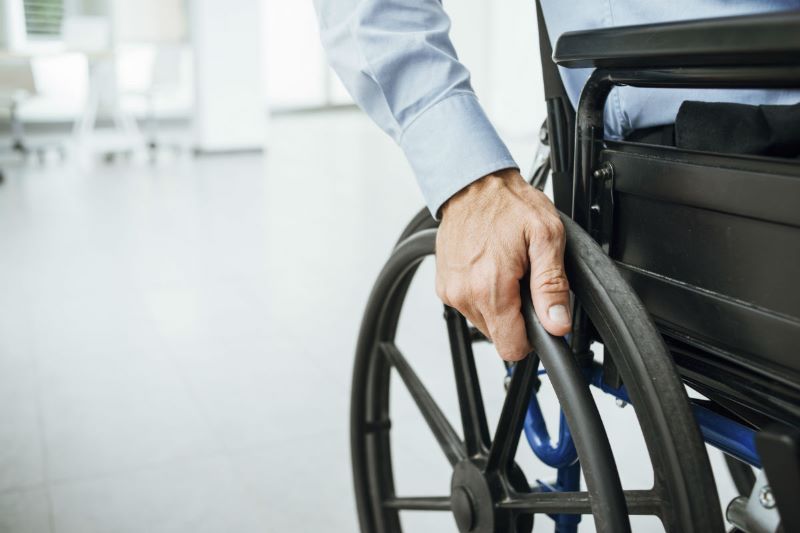Low Permanent Partial Impairments (PPI’s)

Live Help NOW  317-597-6293
317-597-6293
You suffered a permanent workplace injury in Indiana, but it was not serious enough to render you totally disabled. You may still be able to work, but only in a reduced or limited capacity. In this scenario, you could receive a permanent partial impairment payment (PPI) from the state’s workers’ compensation program. However, you should know that some doctors in Indiana may assign a low PPI rating, and this could affect how much of a settlement you receive.
If you’ve been injured at work and are seeking compensation through a workers’ compensation claim, consult with an experienced workers’ compensation attorney at Klezmer Maudlin.
What Is Permanent Partial Impairment (PPI) in Indiana?
Indiana offers two types of PPI benefits: scheduled and unscheduled loss benefits. Unlike other workers’ compensation benefits, PPIs are not based on your wages or salary but rather on the extent of impairment for a specific body part. A doctor will determine the PPI rating based on a schedule the state publishes, and the state schedule assigns degrees of impairment with corresponding dollar amounts. The schedules for each degree of impairment are:
- Degrees 1 to 10 – $1,750
- Degrees 11 to 35 – $1,952
- Degrees 36 to 50 – $3,186
- Degrees 51 to 99 – $4,060
As an example, say you lose your thumb in a workplace accident. The degree schedule assigns the loss of a thumb as 12 degrees. If your doctor assigns a 100% impairment rating to your injury, you will receive $1,750 for the first 10 degrees of impairment and $1,952 for the remaining two degrees. Your total payment would be $21,404.
If the schedule does not list the body part in question, you will receive benefits based on the total bodily function you lost. For instance, if your doctor determines you have 30% impairment of a body part not listed, you would receive the same benefits as if you lost a body part listed as 30 degrees on the schedule. So, you would receive 30 x $3,186, or $95,580.
Evaluating Permanent Partial Impairment
You may only receive a settlement in a workers’ compensation claim if a doctor determines that you have a PPI. A PPI is not the same as a full disability that would warrant Social Security Disability benefits. You can find more information about Indiana’s short-term disability laws here.
Different states use different terms, but in Indiana, a partial disability that is the result of a work injury receives a permanent partial impairment rating from a doctor. Typically, workers’ compensation provides settlements if the worker has an injury a doctor diagnoses as permanent. To evaluate the permanence of an injury, insurance companies often hire doctors who receive a lot of insurance referrals. Workers’ compensation carriers pay physicians well and, as a result, doctors enjoy doing workers’ compensation cases.
Some Doctors Have Reputations for Assigning Low Permanent Partial Impairment Ratings
Many workers’ compensation doctors are excellent, credible, and honest. However, some popular workers’ compensation physicians assess disabilities and assign low PPIs to please the insurance company that refers cases to them so the doctor can continue to get more referrals.
However, one major drawback of receiving a low PPI rating is that you may not get all the money you deserve.
Our firm knows which doctors tend to give very low PPIs. If you do not have experience with a workers’ compensation case and do not know these doctors, there is a good chance that you may be assigned a low PPI. As a result, you may receive a lot less money or no money at all for your partial disability. One of the benefits of hiring an experienced workers’ compensation attorney is the lawyer has experience with the tricks insurance companies tend to play.
Does Permanent Partial Impairment Affect a Social Security Disability Claim?
If you receive a settlement from a workers’ comp insurance company based upon a permanent partial impairment, you may wonder if you are still eligible for Social Security disability benefits. As a general rule of thumb, receiving PPI benefits does not impact one’s eligibility for Social Security disability benefits. Social Security provides disability benefits for those who can’t work at any job (or cannot earn a minimum wage doing any job). You could be eligible for PPI benefits for a wide range of injuries and still be able to work in some capacity.
Hiring an Experienced Workers’ Compensation Attorney Is Essential
We care about fighting for the rights of injured persons and workers throughout the state of Indiana.

